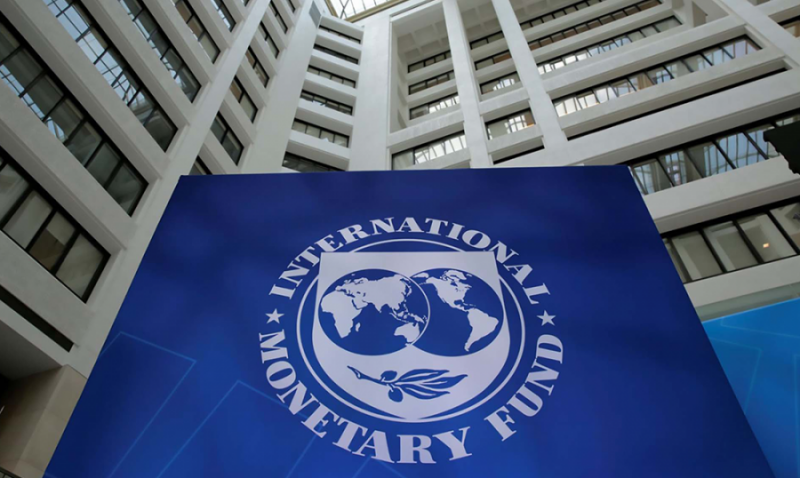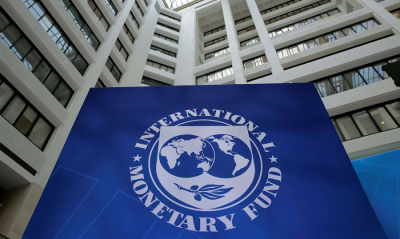International institutions have preempted the exploratory visit of the International Monetary Fund (IMF) delegation regarding the Lebanese file to Beirut with pessimistic assessments on the progress of the legislative and executive reforms required by the international community. They have warned that this could further downgrade Lebanon's credit rating if the government restructures the public debt in local currency or fails to pay its debt obligations in lira or service the debt on time.
The IMF delegation will arrive in Beirut next week, where it will meet with political leaders, most notably Parliament Speaker Nabih Berri, Prime Minister Najib Mikati, and Finance Minister Youssef Khalil. There will also be detailed meetings at the central bank with acting governor Wassim Mansouri, his deputies, and his team, in addition to discussions with bankers, experts, and heads of parliamentary committees concerned with financial legislation.
The international rating agency "Standard & Poor's" (S&P Global Ratings) has pointed out the financial and monetary impasse overseeing its fourth year in Lebanon, highlighting the necessities for maintaining the rating of sovereign debts in dollars at a level indicative of voluntary default and reaffirming the negative outlook, alongside growing doubts about the government's willingness to restructure the public debt.
International financial institutions link any improvement in the foreign currency debt rating to the government's initiative to enact a clear and scheduled plan for restructuring the public debt. Indeed, the agency also noted that it would consider improving Lebanon's rating should the likelihood of default diminish.
The international institution asserted in its latest report that implementing reforms will be challenging in light of the political division and the limited capacity of caretaker government to enact laws, alongside delays in electing a new president and appointing a full-fledged governor for the central bank. The same applies to restructuring the banking sector, which is hindered due to a lack of consensus among stakeholders on the nature and size of the losses and how to distribute them.
The list of desired reforms includes the approval of a medium-term plan for restructuring public finances and debts, completing the audit of the central bank's foreign currency assets, starting an external evaluation of the 14 largest banks, restructuring banks, and unifying exchange rates. It should be noted that the proposed law for imposing exceptional controls on capital and transfers (capital control) as well as the law amending banking secrecy, along with altering the official exchange rate of the national currency, have not met the requirements set by the IMF and will not effectively contribute to the rehabilitation of the sector.
According to the rating agency, Lebanese authorities have not agreed on how to distribute the losses incurred by the banking sector due to the restructuring of public debt and the depreciation of the lira against the US dollar, which has hindered economic recovery. Additionally, the caretaker government may not implement the reforms previously required by the IMF until a new president is elected.
In the scope of updating reference data, a sharp contraction in the GDP has emerged, declining to $16 billion, down from the pre-crisis high of about $53 billion. Consequently, the agency estimated that the GDP per capita dropped from approximately $7,800 in 2017 to only about $2,000 in the current year.
As the contraction reaches its peak, it is expected that GDP will regain a positive growth trajectory over the next three years, albeit at low averages close to 1 percent, starting with a slight increase of 0.3 percent this year. Additionally, the slight improvement in economic activity and an increase in the number of tourists will support moderate economic growth between 2023 and 2026.
Overall, the debt-to-GDP ratio is expected to reach about 334 percent in 2023, compared to 160 percent in 2019. Notably, the agency revealed that the share of foreign currency debt in total public debt rose from about 40 percent in 2019 to over 90 percent in 2023, calculated based on the exchange rate on the "Sayrafa" platform.
In light of the lack of significant progress in the implementation of debt restructuring and required reforms, investor and depositor confidence has declined, and deposits have also decreased, leading to a rise in the dollarization of deposits to over 90 percent.
It is estimated that the decline in foreign currency reserves, including gold, will continue until it reaches $19 billion by the end of 2026, as a result of financing the current account deficit and state financing, noting that reserves, which include gold reserves but exclude Eurobond holdings, have dropped from $52 billion before the crisis to $26.7 billion at the end of July.
The market value of gold reserves deposited with the Central Bank of Lebanon is currently about $18 billion. However, it cannot be accessed in any way without parliamentary approval to amend a special law enacted in the mid-1980s.
Inflationary waves are expected to continue to surge towards 100 percent over the coming year, following the successive depreciation of the lira against the dollar and the gradual lifting of support for essential commodities, which has led to record highs in the inflation rate, reaching about 171 percent last year. The average annual increase in the price inflation index has now worsened to 230 percent in the first half of the current year and is expected to exceed 250 percent by the end of July.




